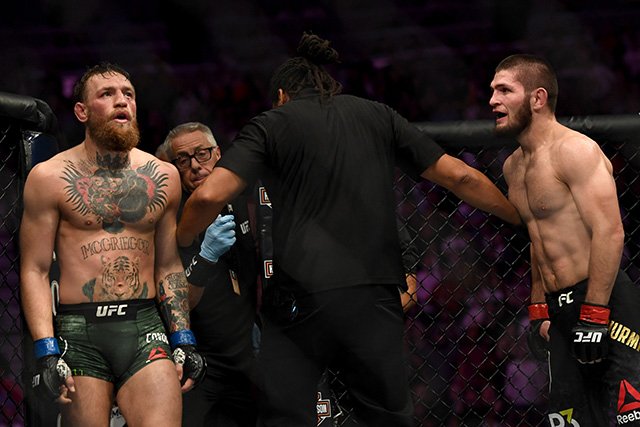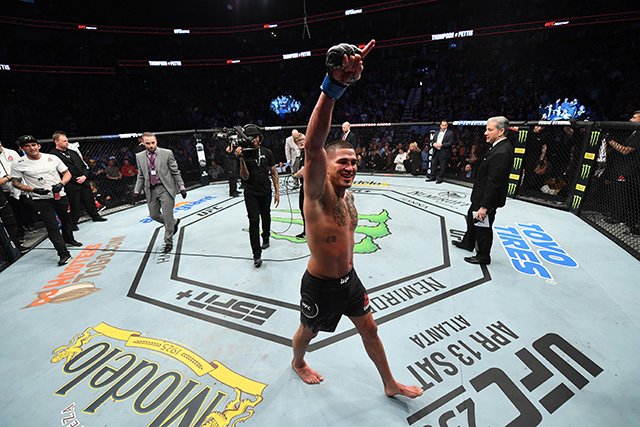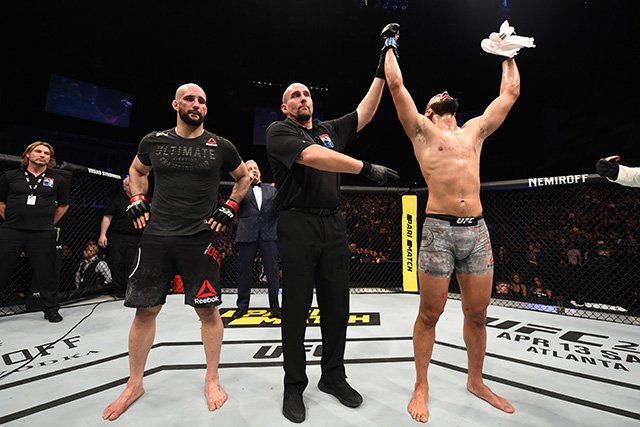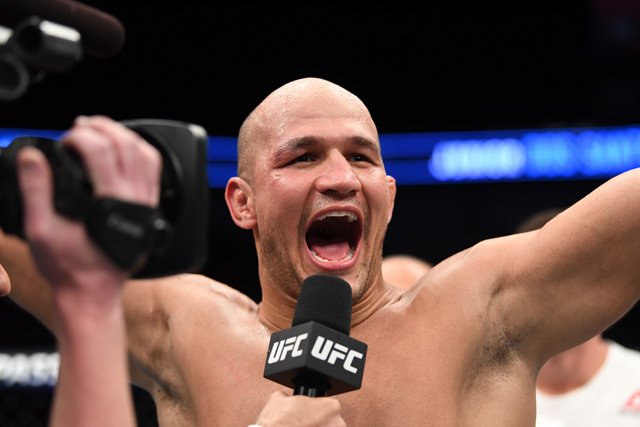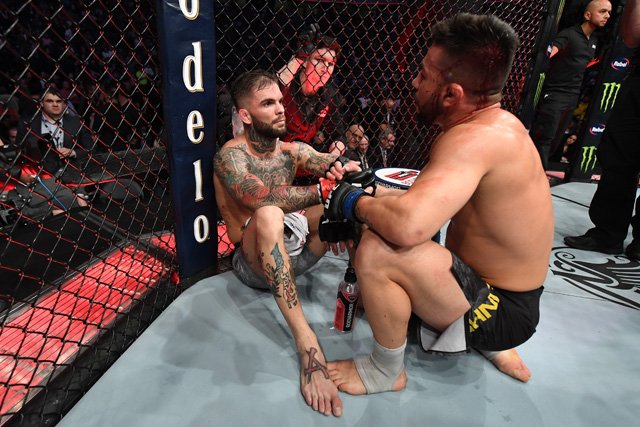Suspended Ultimate Fighting Championship lightweight titleholder Khabib Nurmagomedov and a certain interim Twitter champion did their best last week to fill the void of the first mixed martial artless weekend since January. Not much of a surprise with Artem Lobov making headlines at the Bareknuckle thing. “The Russian Hammer” is our sport’s Helen of Troy, the face that launched a thousand fists … and the occasional dolly.
If you’re reading this, you’re probably well aware of the timeline: Conor McGregor called Nurmagomedov’s wife a towel — not the first anti-Muslim insult to come out of his team — and “The Eagle” responded by calling McGregor a rapist. McGregor deleted the towel tweet and called for a rematch; Nurmagomedov kept the rape tweet up and warned McGregor that he isn’t safe.
As Sherdog columnist Jordan Breen pointed out, this is in many ways the fight game as usual. Prizefighters often have to take it upon themselves to get a chance to fight for the biggest prize, which has resulted in a long history of line-crossing done in the name of promotion. Yet this latest flareup between McGregor and Nurmagomedov has reached an ugliness that is incommensurate with regular rematch buildup: “Rapist vs. Terrorist for the lightweight championship” doesn’t seem like a promotional angle ESPN will want to throw its weight behind.
We’ve reached a point of liminal darkness, one that stretches beyond bad public relations. A lot of people have compared this to the escalation that led to the murders of Biggie and Tupac, and the comparison fits. There’s a similarly ominous air, a combination of authenticity-driven ego and publicity that prevents cooler heads from prevailing. Opponent’s family members have been weaponized, and the violence has already spilled out of the accepted arena of entertainment.
However, another analogy struck me, one that I haven’t been able to shake…

